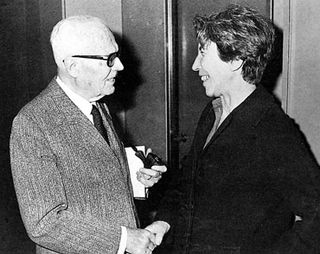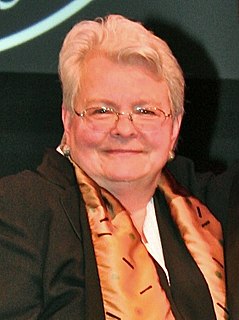A Quote by Natalia Ginzburg
My vocation is to write and I have known this for a long time. I hope I won't be misunderstood; I know nothing about the value of the things I am able to write. I know that writing is my vocation. When I sit down to write I feel extraordinarily at ease, and I move in an element which, it seems to me, I know extraordinarily well; I use tools that are familiar to me and they fit snugly in my hands. But when I write stories I am like someone who is in her own country, walking along streets that she has known since she was a child, between walls and trees that are hers.
Quote Topics
Able
About
Along
Am
Between
Child
Country
Down
Ease
Element
Extraordinarily
Familiar
Feel
Fit
Hands
Her
Hers
Hope
Know
Known
Like
Long
Long Time
Me
Misunderstood
Move
Nothing
Own
Seems
She
Since
Sit
Someone
Stories
Streets
Things
Time
Tools
Trees
Use
Value
Vocation
Walking
Walls
Well
Which
Write
Writing
Related Quotes
To know that one does not write for the other, to know that these things I am going to write will never cause me to be loved by the one I love (the other), to know that writing compensates for nothing, sublimates nothing, that it is precisely there where you are not--this is the beginning of writing.
Darling, You asked me to write you a letter, so I am writing you a letter. I do not know why I am writing you this letter, or what this letter is supposed to be about, but I am writing it nonetheless, because I love you very much and trust that you have some good purpose for having me write this letter. I hope that one day you will have the experience of doing something you do not understand for someone you love. Your father
Writing is something that you don't know how to do. You sit down and it's something that happens, or it may not happen. So, how can you teach anybody how to write? It's beyond me, because you yourself don't even know if you're going to be able to. I'm always worried, well, you know, every time I go upstairs with my wine bottle. Sometimes I'll sit at that typewriter for fifteen minutes, you know. I don't go up there to write. The typewriter's up there. If it doesn't start moving, I say, well this could be the night that I hit the dust.
The secret to writing is writing. Lots of people I know talk about writing. They will tell me about the book they are going to write, or are thinking about writing, or may write some day in the future. And I know they will never do it. If someone is serious about writing, then they will sit down every day and put some words down on paper.
My writing isn't actually guided by issues. I know it seems that way, but I don't sit down and think, Oh, there's this issue I'm bothered about. I only write about things that directly impact my life. When I write, there's a pain that I have to reach, and a release I have to work toward for myself. So it's really a question of the particular emotional circumstance that I want to express, a character that appears, a moment in time, and then I write the play backwards.
I believe that if a child has a feel for writing and wants to write, there is an audience. Children should just dive in and go at it. I would encourage children to write about themselves and things that are happening to them. It is a lot easier and they know the subject better if they use something out of their everyday lives as an inspiration. Read stories, listen to stories, to develop an understanding of what stories are all about.
If anyone e-mails you something "by George Carlin," there's a 99 percent chance I did not write it. I didn't write "Paradox Of Our Time." I didn't write "George Carlin On Aging." I didn't write a eulogy for my wife after she died. I didn't write the New Orleans thing. I didn't write "I Am A Bad American." None of them. You know what I've decided to do? I'm going to get a little cheap put-it-together-yourself website called NotMe.com.
Writing is a weird thing because we can read, we know how to write a sentence. It's not like a trumpet where you have to get some skill before you can even produce a sound. It's misleading because it's hard to make stories. It seems like it should be easy to do but it's not. The more you write, the better you're going to get. Write and write and write. Try not to be hard on yourself.
I am not an evangelist. I am not a preacher. I am a musician. That is what I know how to do. I know how to write songs. I know how to write things that relate to my heart. I feel that I talk about God in every song, in everything I do - all of it! I really do not know how to respond. I do not relate to that.


































